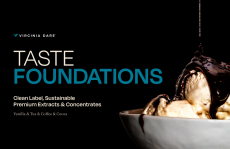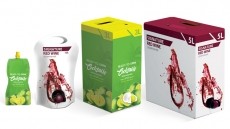US drives global kosher ingredient need
without much local demand to gain certification so they can export
to the high-potential US, and some are exporing continuous kosher
production to keep down costs.
Rabbi Eliyahu Safran, VP of communications and marekting at Kosher certification service The Orthodox Union (OU) told FoodNavigator.com that there is an increase in ingredients firms seeking certification.
As more and more kosher consumer products become available, suppliers do not want to be excluded from the market.
While the US is the largest Kosher market the companies that cater to it are geographically wide-spread.
The fact that the OU has plants on its books in Turkey and China, for instance, and over 300 (mainly ingredients) plants in China does not mean that there is a big consumer demand for Kosher products in these local markets.
Rather, the companies seeking certification are wishing to export to the US.
The OU, which has its headquarters in the US, certifies 6,000 plants in 83 countries (both ingredients and finished product manufacturers).
Data drawn from Mintel's Global New Products Database bears witness to the vast difference in size between the US and European kosher markets.
The database contains around 12,000 entries of new products in the US in the last five years, compared to less than 400 in Europe.
French ingredients firm Solabia recently introduced continuous kosher production of its peptones and hydrolysates at its plant in Beauvais, France, as as to be able to meet demand more quickly and help reduce costs.
Peptones - enzymatic digests of plant of animal protein - are used by the agri-food industries for the production of starter cultures or probiotics for dairy or food.
Solabia has now transfered all production of meat peptones to its facility in Brazil, so it is not longer making any products that could contaminate the line in France.
This is not the first time they have made kosher products, but Miller said that the company made be "somewhat unique, in that most people do it on a campaign basis".
Since in most factories a range of different products are produced, it is not possible to dedicate the whole facility to kosher strategy.
Rather, they decide to make kosher products only at certain times of the year.
A drawback of this is that cleaning the production lines under rabbinical supervision can call for between 24 and 48 hours down-time.
This means that the cost is spread over limited products - and it is not only the cost of koshering (said to range from $2,500 and $5,000) that must be considered, but non-kosher products that are not being made and sold at that time.
"Proportionately it is a lot more expensive for customers," said Miller.
He added that they cannot respond to market demand fast, as they production is limited to the allocated time frame.
Miller agreed that because of the precepts of traceability, mixing specifications and no contamination between milk and meat products, there is often a perception of higher quality.
In times of general concern about the safety of food supply, such a perception can make kosher foods attractive to non-Jewish consumers too.
In a survey conducted in the US by Mintel in 2005, 55 per cent of respondents who buy kosher foods said they thought they held a higher market of health and safety than non-kosher items.
Mintel identified demand for dairy- and meat-free products as driving forces behind market growth - despite the shrinking US Jewish population.
Moreover food that is certified as Kosher is also suitable for Muslims who follow a Halal diet.













